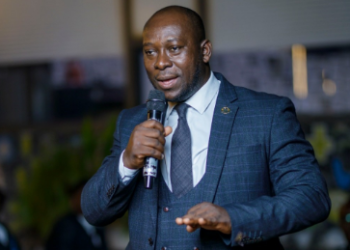Accessibility is a taunted component of the Ghanaian legal system, although it does not admit a bounded definition. In the mistiness of legal jargons, procedural technicalities, dependence on judicial precedence and high standards for advocacy, it is important to determine the issue; ‘whether or not unrepresented legal illiterates can have a good day in court?’
Conceptualizing Pro Se
The courtroom has the bench, the bar, and the gallery. The bench is the abode of the judge. The bar hosts the lawyers, and the gallery is for persons present to observe proceedings.
In the ordinary expectations of court business, we expect to see three categories of persons during court business videre licet the judge, the law and the litigation. Pro se representation is an exception to this ordinary expectation. Some clients choose to handle cases without legal representation.
The choice may be voluntary or situational. Legal engagements do not come cheap. Even in jurisdictions like Ghana with ethical billing standards, the average client may not be able to afford the services of a lawyer. Hence, situational pro se is normally due to the absence of sufficient resources to engage the services of a lawyer.
Ghana and Pro Se Representation
The concept is of historical essence. It is said that the formalization of the legal profession began in the Edwardian era. Reasonability, therefore, dictates that before this era, litigation was handled pro se. If not too much of a stretch, the Biblical Solomonic era paints a clear picture of the historical court.
King Solomon adjudicated a matter concerning the parentage of a child in 1 Kings 3:16-28. The book portrays a trial conducted by unrepresented individuals before the King’s council.
Ghana is a brainchild of the common law tradition. There is recognition for pro se representations. The legal profession was formalized in 1877 through the establishment of the erstwhile Gold Coast bar.
There was an established customary law adjudicatory system before this formalization. Therefore, pro se representation is not new to Ghana since it has been an integral component of the traditional adjudicatory regime.
It remains untouched even in the current constitutional and legislative arrangement of Ghana. Article 19, clause 2 of the 1992 Constitution gives an accused person the right to defend himself before the court IN PERSON or by a lawyer of his choice.
Also, the accused person must be afforded facilities to examine, IN PERSON or by his law, witnesses called by the prosecution before the court. In Article 35 of the 1992 Constitution, the state bears the responsibility of promoting just and reasonable access by all citizens to public facilities and services, including the court systems, procedures, and processes (emphasis is mine) in accordance with law.
Reference to ‘in person’ in article 19 quoted above is sufficient confirmation of Ghana’s recognition for pro se representations.
Rule of Law and Ramifications for Pro Se Representations
The topic is always up for debate concerning the extent to which pro se representations nurture the rule of law. At the blue corner, it can be argued that it broadens access to the court. Financial incapacity to engage a lawyer does not cripple access to the courts. Basically, lawyers are considered agents, and as the basic principle of agency goes, the work of the principal is as good as the involvement of an agent.
In the opposing red corner, it can be said that the physical access to the courts does not substantially correlate with fair access to the courts. In support, the law is filled with procedural and substantive complexities. In some situations, lawyers kowtow, so how far can an unrepresented person travel in the abys of the law?
Take the instance of a popular quote by Dean William Prosser, ‘The realm of conflict of laws is a dismal swamp filled with quaking quagmires and inhabited by learned but eccentric professors who theorize about mysterious matters in a strange and incomprehensible jargon’. Some advocates are still searching for the meaning of this quote.
Procedural flexibility and Pro se representations.
The first hurdle a pro se disputant must surmount is to trigger and use the procedural rules. Procedural rules are adjuncts of substantive law. Thus, in the 2013 Ghanaian Supreme Court decision of Hannan Buckman v Ankomanyi [2013-2014] 2 SCGLR 1372, the court emphatically stated that the rules of courts are not ornamental pieces, so they are meant to be complied with.
Yet, they command a degree of flexibility. They are construed to promote speedy and effective justice and eliminate all unjust technicalities. At the District Court level, proceedings are less technical to make it easier for pro se litigants.
Also, the strict rule that failure to conduct cross-examination would amount to admission was discarded in the case of Mante and Another v Botwe [1989-90] 1 GLR 479-497 for unrepresented illiterates. In that case, Justice Taylor said that ‘The plaintiff was apparently illiterate and I am therefore prepared in accordance with the practice of our courts to take a generous view on her behalf that the witness she took along with her was not called to testify at the arbitration’.
Again, in the decision of Republic v High Court, Accra; Ex parte Allgate Co. Ltd (Amalgamated Bank – Interested Party) [2007-2008] SCGLR, 1041, the Supreme Court confirmed that procedural breaches may be cured through amendments, costs, or any other available means.
The Supreme Court was called to answer questions concerning the procedural rights of pro se litigants in 2013 videre licet the case of Zainabu Naske Bako-Alhassan v Attorney General (suit No. No. J1/22/2012. decision delivered 24th April,2013).
The plaintiff filed the case for a declaration that Ghanaian law does not sufficiently favor unrepresented persons. The plaintiff was pro se. The plaintiff’s writ did not conform to the Supreme Court procedure rules. Also, the plaintiff improperly filled out the statutory form, Form 27, for the invocation of the court’s jurisdiction.
In reaction, the Supreme Court noted that strict adherence to form has given way to substance. The court admitted that the plaintiff’s pleading sufficiently established a cause of action. The court interestingly stated that:
“For example, it should even be satisfactory if the plaintiff were to have written her complaints in a letter to the court and provided the nature of the complaint can be well understood, such a plaintiff should not be denied reliefs. Courts all over the common law jurisdiction are striving to achieve substantial justice in ensuring that they move away from the straitjackets of mechanical application of rules of procedure”.
To preserve the sanctity of the rules, the court said that the flexibility should be construed as judicial doting of fundamental requirements. In Republic v High Court, Accra; Ex parte Allgate Co. Ltd (Amalgamated Bank – Interested Party), fundamental breaches were defined as jurisdictional breaches, statutory or constitutional breaches, and natural justice breaches.
For those breaches, the curative powers of the court cannot be triggered to save unrepresented persons. In the language of the Zainabu Naske Bako-Alhassan’s court, “to the extent that the Plaintiff seeks to ask for special concessions for the self-represented nonprofessional litigant, and to that extent, it has to be noted that we cannot have a pluralistic or dualist system of procedure for the self-represented and the represented litigant.”
From a careful analysis, it can be concluded that there is procedural flexibility for unrepresented persons. Accessibility to the court’s processes and procedures are not hampered by technicalities. Unless in cases of fundamental breaches, the court will render support to such litigants.
Conclusion
Although there is procedural flexibility, the grass is not always greener for pro se disputants. This highlights the important role of lawyers in the adjudication process. The call by Dotse JSC deserves all the attention it requires.
The Legal Aid Scheme needs statutory and practical revamping to assist pro se clients pursue their day in court. The current system provides the opportunity to be unrepresented. To use that opportunity is a daunting task, so much for Albert Venn Dicey’s rule of law.
Nana Kwaku Boadu-Boadu
Lawyer, Chartered Economic Policy Analyst, Doctoral Researcher






